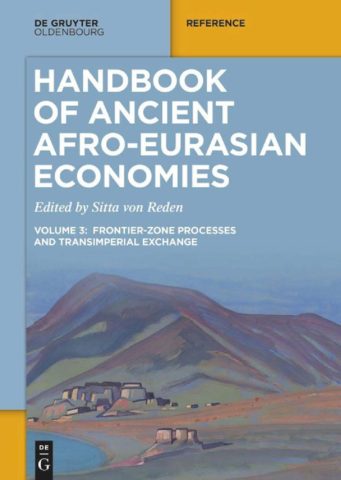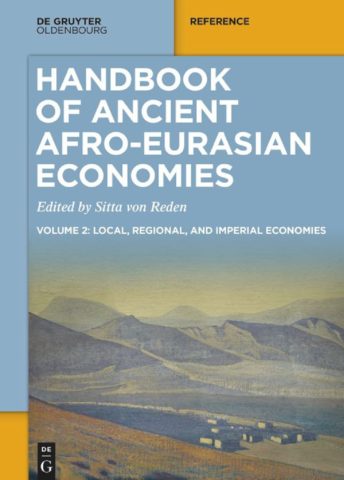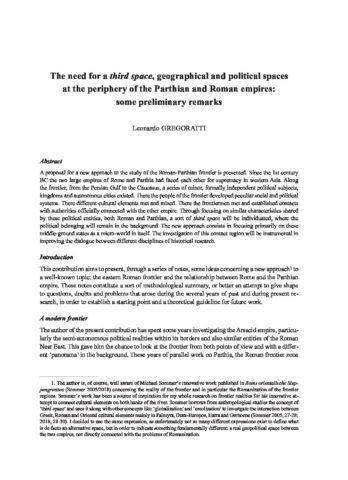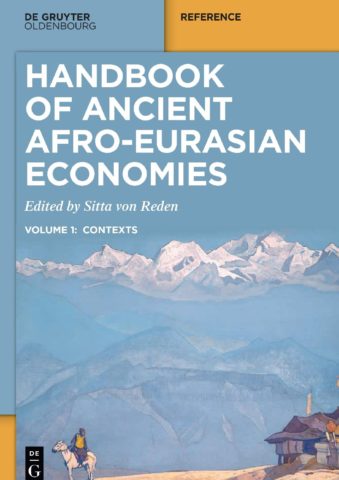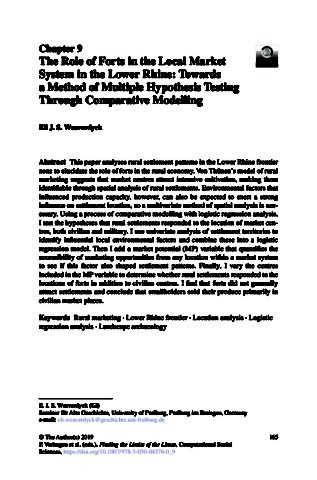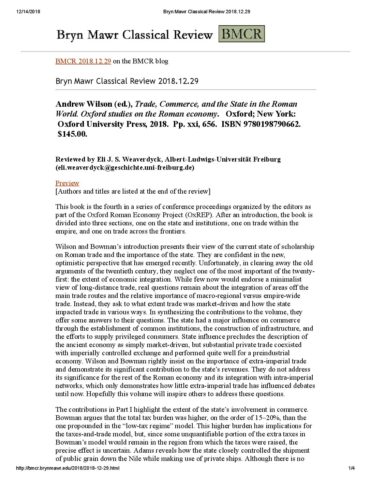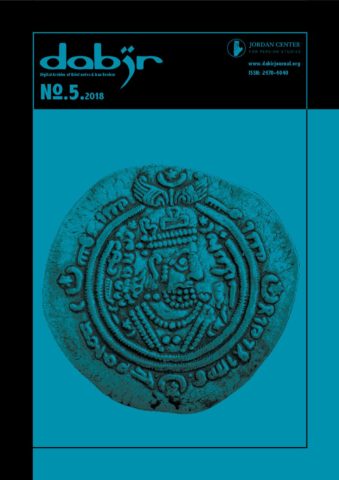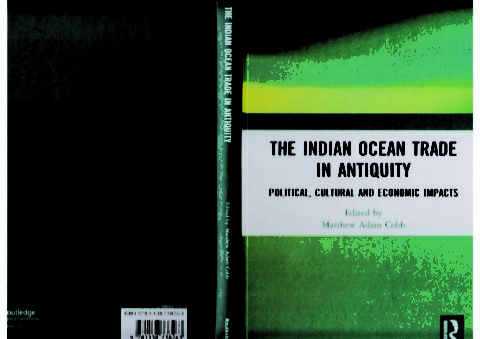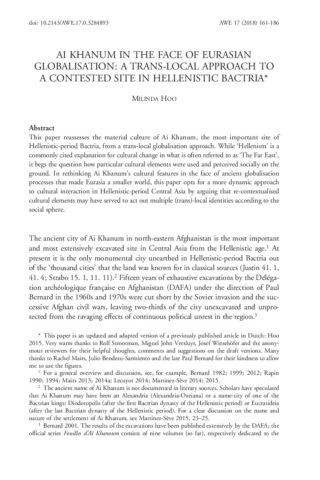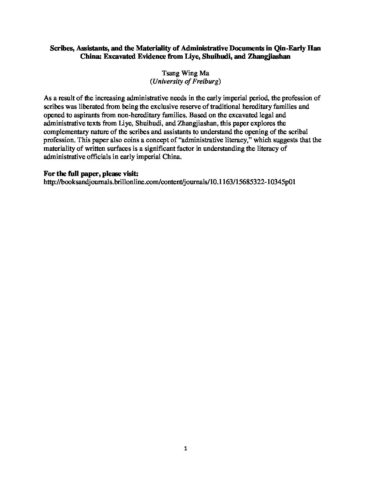Archives: Publications
Handbook of Ancient Afro-Eurasian Economies Volume 2: Local, Regional, and Imperial Economies
The second volume of the Handbook describes different extractive economies in the world regions that have been outlined in the first volume. A wide range of economic actors – from kings and armies to cities and producers – are discussed within different imperial settings as well as the tools, which enabled and constrained economic outcomes.
The need for a third space, geographical and political spaces at the periphery of the Parthian and Roman empires: some preliminary remarks
A proposal for a new approach to the study of the roman-Parthian frontier is presented. Since the 1st century
BC the two large empires of rome and Parthia had faced each other for supremacy in western asia. along
the frontier, from the Persian Gulf to the Caucasus, a series of minor, formally independent political subjects,
Handbook of Ancient Afro-Eurasian Economies Volume 1: Contexts
The Role of Forts in the Local Market System in the Lower Rhine: Towards a Method of Multiple Hypothesis Testing Through Comparative Modelling
This paper analyses rural settlement patterns in the Lower Rhine frontier
zone to elucidate the role of forts in the rural economy. Von Thünen’s model of rural
marketing suggests that market centres attract intensive cultivation, making them
identifiable through spatial analysis of rural settlements. Environmental factors that
influenced production capacity, however, can also be expected
Andrew Wilson (ed.), Trade, Commerce, and the State in the Roman World. Oxford studies on the Roman economy. Reviewed by Eli J. S. Weaverdyck, Albert-Ludwigs-Universität
This book is the fourth in a series of conference proceedings organized by the editors as part of the Oxford Roman Economy Project (OxREP). After an introduction, the book is divided into three sections, one on the state and institutions, one on trade within the empire, and one on trade across the frontiers.
Language and Legend in Early Kushan Coinage: Progression and Transformation
This paper discusses the
transformation of the language from Greek to Bactrian which was as a
result of the coinage becoming imperial and a cultural reaction to
changing social and imperial requirements rather than the opposition of
a ruler to the former language and tradition.
The Indian Ocean Trade in Antiquity
The period from the death of Alexander the Great to the rise of the Islam (c. late
fourth century bce to seventh century ce) saw a significant growth in economic,
diplomatic and cultural exchange between various civilisations in Africa, Europe
and Asia. This was in large part thanks to the Indian Ocean trade. Peoples living
Ai Khanum in the face of Eurasian globalization
This paper reassesses the material culture of Ai Khanum, the most
important site of Hellenistic-period Bactria, from a translocal
globalisation approach. While ‘Hellenism’ is a commonly cited
explanation for cultural change in what is often referred to as ‘The Far
East’, it begs the question how particular cultural elements were used
and perceived socially on
Scribes, Assistants, and the Materiality of Administrative Documents in Qin-Early Han China: Excavated Evidence from Liye, Shuihudi, and Zhangjiashan
As a result of the increasing administrative needs in the early imperial period, the profession of scribes was liberated from being the exclusive reserve of traditional hereditary families and opened to aspirants from non-hereditary families. Based on the excavated legal and administrative texts from Liye, Shuihudi, and Zhangjiashan, this paper explores the complementary nature of
